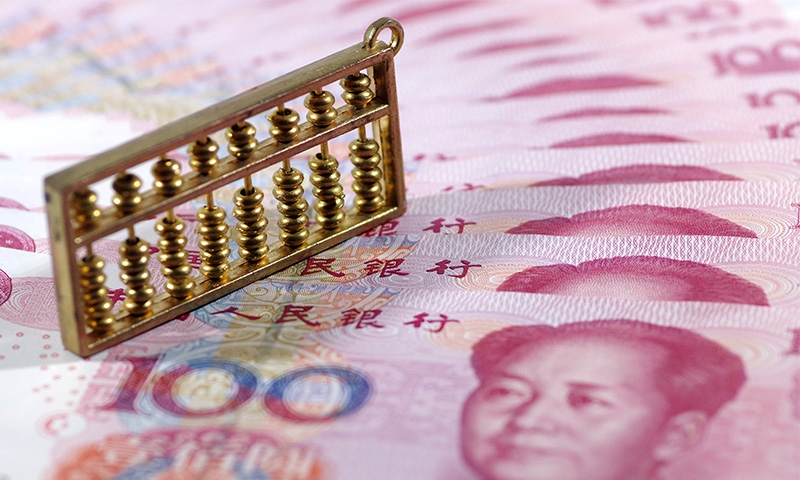
Photo: VCG
New downward pressure on China's economy intensified in April as a result of the new round of COVID-19 outbreak and changes in the international situation that exceeded expectations. China said on Wednesday that fiscal and monetary policies should give priority to employment and stabilize the overall economy.
Besides employment, China will ensure price stability and energy supply and provide policy support to businesses that are experiencing difficulties to pay rent, according to the guidelines released at the State Council executive meeting chaired by Premier Li Keqiang on Wednesday.
On top of the previous support package, another 50 billion yuan ($7.4 billion) will be allocated to central power generation enterprises for renewable energy subsidies, and 10 billion yuan ($ 1.4 billion) will be injected to support bail-outs of coal power enterprises and boost power generation. Advanced coal production capacity will be released in a safe and orderly manner and power cuts must not occur, said the State Council.
"China is in ample supply of basic necessities for people's livelihood but we should not be complacent. We need to ensure stable grain output and supply and keep prices stable. At the same time, efforts should be made to smooth logistics, especially in key areas, and maintain the stability of industrial and supply chains," said Li.
China's logistics have gradually resumed from the latest wave of COVID-19 in several regions.
During a press conference held on Wednesday, the Ministry of Transport (MOT) said it will introduce measures to accelerate the use of 100 billion yuan ($14.8 billion) in refinancing for transportation and logistics.
Freight and logistics problems have been initially alleviated and major logistics indicators have continued to improve, according to the MOT.
Almost all expressway toll stations and service areas have reopened and freight traffic on national expressways on May 11 increased by 8.59 percent, compared with April 18. Meanwhile, cargo traffic at major international airports increased by about 30 percent and express courier by about 20 percent.
The daily container throughput of Shanghai's ports remained stable at 100,000 TEUs, rising to more than 80 percent of the pre-pandemic levels, said the MOT.
Also on Wednesday, China's top market regulator opened a public consultation for one week on the guidelines on investigation and punishment of illegal acts of price gouging.
According to the draft guidelines, it shall be deemed to constitute an illegal act of price gouging when a producer fails to sell the finished goods in time without justifiable reasons, exceeds the normal storage quantity or period, or continues to hoard products after being warned by market supervisors.
In any of the following circumstances, a business operator shall be deemed responsible for committing an illegal act of price gouging for unreasonably and substantially raising transportation fees or charging additional fees, substantially raising commodity prices without an obvious increase in costs, or the increase in commodity prices is significantly higher than the increase in costs, read the guidelines.
The State Council also revealed more detailed measures to support micro, small and medium-sized enterprises (MSMEs) and self-employed households.
For example, there will be policy support for rent funding enterprises that are currently experiencing difficulties, and the payments for rental fees can be deferred upon application by the end of 2022, which is expected to reduce the burden on enterprises by over 90 billion yuan ($13.3 billion).
The State Council said it will guide local governments to subsidize water and electricity expenses of MSMEs and self-employed households.




